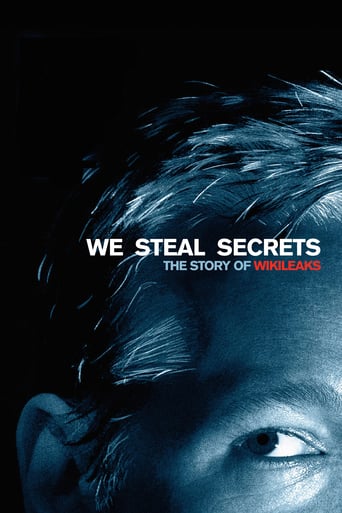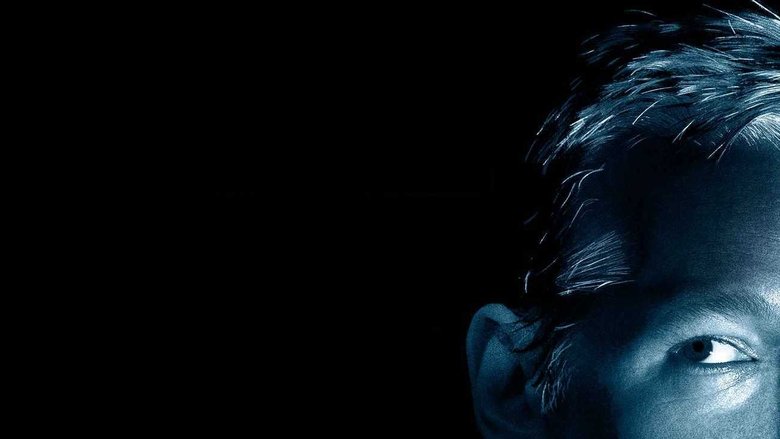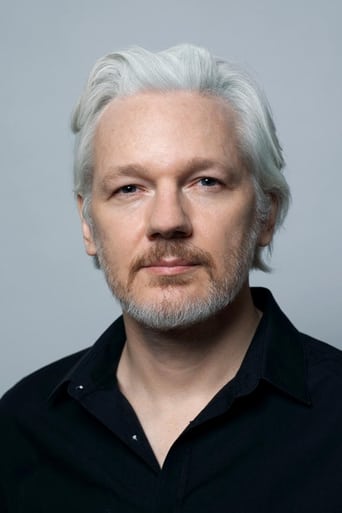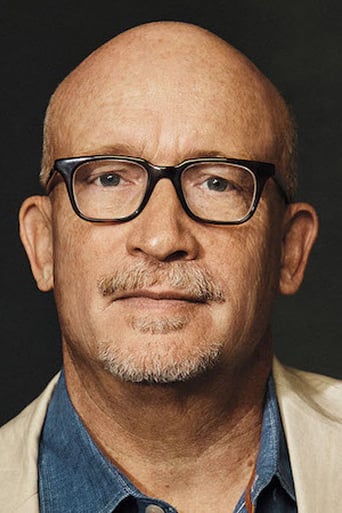We Steal Secrets: The Story of WikiLeaks (2013)
Julian Assange. Bradley Manning. Collateral murder. Cablegate. WikiLeaks. These people and terms have exploded into public consciousness by fundamentally changing the way democratic societies deal with privacy, secrecy, and the right to information, perhaps for generations to come. We Steal Secrets: The Story of WikiLeaks is an extensive examination of all things related to WikiLeaks and the larger global debate over access to information.
Watch Trailer
Cast


Reviews
How sad is this?
A Disappointing Continuation
I am only giving this movie a 1 for the great cast, though I can't imagine what any of them were thinking. This movie was horrible
A movie that not only functions as a solid scarefest but a razor-sharp satire.
This 2013 documentary film by Alex Gibney focuses on the enormous Wikileaks data dump of 2010, which was prompted by the massive files released by Bradley (Chelsea) Manning. The filmmaker takes an open-minded and balanced approach to this controversial topic. While Gibney was unwilling to pay the $1 million asking price for an interview with Julian Assange, there is still abundant footage and sound bytes of Assange in his own words.The film is successful in raising the ethical concerns about whether such classified information as strategic military data should be in the public domain. The position of Julian Assange is clearly stated in the film: "Information should be free." In this regard, Assange was breaking new ground in using his computer skills to release a video of war atrocities in Iraq when civilian deaths resulted from American military incompetence. Of course, the video footage drives home Assange's point when the driver of a truck was taking his kids to school when he was killed, and a bystander's camera was mistaken for a weapon, prior to the bombing. This kind of information was aired nightly during the Vietnam War. Today, it is not. Thus, the importance of accountability to the American public.The opposing position presented in the film is that it is necessary for the military to keep secrets to protect those who are engaged in a covert operations. This position is argued in the film by Michael Haden, a retired general and former Director of the CIA. The film's title, "We Steal Secrets" is a line spoken in the film by Haden, as he argues that the nature of war in the twenty-first century demands secrecy.But Haden's countervailing argument about mandatory secrecy does not hold up under close scrutiny. Haden believes that the American public must be kept in the dark about issues that HE deems imperative to national security. This paternalistic attitude is at the heart of why there have been so many needless wars in American history of the past century when bureaucrats, as opposed to elected officials are making decisions of policy and shaping our history as a nation. Haden was not an elected official, hence, the importance of Hayden keeping the Congress and Americans apprised of the protracted wars. As an apologist for state secrecy, Haden was also proven wrong about the computer skills of Bradley (Chelsea) Manning that allowed Manning to store images even after he had assaulted his female supervisor and was relegated to the mail room. There appears to be no concern from Haden about the ease of access to United States government classified materials that led to their eventual dissemination to the public. The ethical issues raised in the film appear to be tied directly to bureaucratic incompetence on the part of leaders like Michael Haden.Towards the end of this long documentary, the film went off the rails by spending far too much time on the allegations of sexual misconduct of Julian Assange (the rape charges against him were eventually dropped in Sweden in 2017). There is also too much time wasted on the personal sexual identity and the incarceration of Bradley Manning. (President Obama commuted the sentence of Bradley Manning, who had become Chelsea Manning by early 2017). So, where does that leave us now? ANSWER: Probably in the same state of confusion, controversy, and public apathy about the secrecy issue as when Assange was using the handle of "Mendax" as a teenager computer geek.
If this film tells us anything its that the mainstream media like their corporate paymasters are very much in bed with the governmental organizations who Julian Assange and others looks to expose. From its title its clear that this is film offers little in the way of objective journalism and instead tows the mainstream media line that Assange is not a whistle blower but in fact an irresponsible thief. There is some interesting facts included in the documentary but its inability to remain objective for me at least undermined its credibility and its value as a serious work. Of course without Assange and people like Bradley Manning the worst excesses of government and corporate society would never come to light. A message this film conspicuously overlooks.
I am not shocked by the amount of really dismal reviews this film has gotten from users on IMDb considering the passionate following the Assange has maintained. But people don't give Alex Gibney enough credit. I think the director has built a reputation as a fair, objective critic of power, and his filmography ('Taxi to the Dark Side, Smartest Guys in the Room') has shown that. I believe Julian Assange built a personality cult around him, and many of his followers are either unwilling or unable to see the complexities of this saga, and would rather blindly follow this man into the abyss. What a strange and modern tragedy. The tragedy and irony of the story really is how such a great and noble idea as Wikileaks was corrupted by the same forces it railed against, and how the need for secrecy prevails. Excellent and compelling documentary.
I rate this documentary seven because of its watchability, although I realised while watching it that my mind was being warped against Assange. The title alone is a giveaway. Hackers have been very unfortunate, particularly since they caused the personal computer and the internet to be invented through their hacking work on telephones in the 1970s. It was William F. Gates who first threatened a hacker with the law, and that individual was later locked up with a lengthy sentence, starting the whole ugly corporate/state process that continues to this day with the victimisation of Assange. The documentary makes it plain that if Assange was to be locked up for publishing the war and state documents, so should the editors of the New York Times and The Guardian. It also showed the NYT journalists joining in the badmouthing of Assange, according to the CIA script. Then the film went on to condemn Assange for taking refuge with the one country that offered to help out: who could blame him? Yes, its a mixed up film that tries to show up Assange as a power freak, although he is of course a pathetic victim of the giant power that he took on. I, for one, truly hope he gets elected to the Australian Senate.







